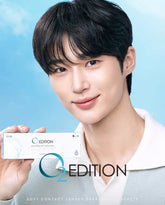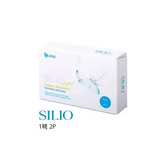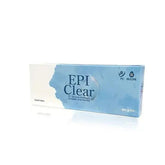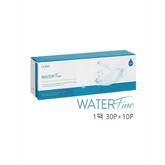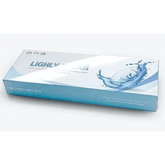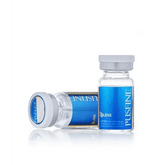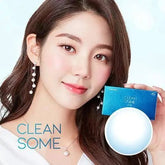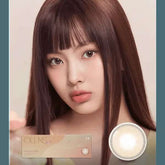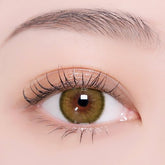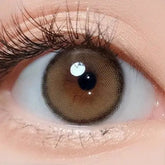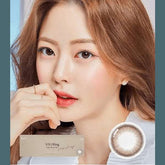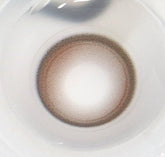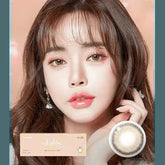-
Vendor:OLENS
Olens O2 Edition Clear (40p)
Olens O2 Edition Clear (40p) – Daily Disposable Clear Contacts for Comfort & Clarity Meta Description: Discover Olens O2 Edition Clear (40p) daily disposable contact lenses with 55% water content and phosphorylcholine material for ultimate hydration and comfort. Includes 40 pieces per box. Product...- $39.99
$55.00- $39.99
- Unit price
- per
Save $15.01 -
Vendor:OLENS
Olens Silio Hydrogel Clear
Olens Silio Hydrogel Clear (Monthly, 2p) When it comes to clear lenses, comfort and safety are non-negotiable. The Olens Silio Hydrogel Clear is designed for those who wear contacts daily and need something that delivers hydration, breathability, and reliable vision correction—all in one lens....- $28.49
$40.00- $28.49
- Unit price
- per
Save $11.51 -
Vendor:LENSRANG
LensRang Epi Clear
LensRang Epi Clear: Monthly PC + Silicone Hydrogel Clear Contact Lenses The LensRang Epi Clear lenses are designed to provide exceptional clarity and all-day comfort with the reliability of monthly disposables. Made from Phosphorylcholine (PC) and silicone hydrogel, these clear contacts combine advanced oxygen...- $31.99
$42.00- $31.99
- Unit price
- per
Save $10.01 -
Vendor:LENSRANG
LensRang Re:View Clear
LensRang Re:View Clear: Monthly Silicone Hydrogel Clear Contact Lenses The LensRang Re:View Clear lenses are designed to deliver crystal-clear vision and long-lasting comfort with the practicality of monthly disposables. Made from silicone hydrogel with 40% water content, these clear contacts allow more oxygen to...- $21.99
$32.00- $21.99
- Unit price
- per
Save $10.01 -
Vendor:LENSTOWN
LensTown Re pure Clear
LensTown Re Pure Clear – Long-Term Clear Contact Lenses with Hydrating Comfort Introduction to LensTown Re Pure Clear The LensTown Re Pure Clear contact lenses are designed for users who want reliable vision correction with all-day comfort. Unlike colored lenses, these are clear contacts,...- $26.99
$38.00- $26.99
- Unit price
- per
Save $11.01 -
Vendor:OLENS
Olens Water Fine Clear (40p)
Olens Water Fine Clear (40p) If you’re looking for daily clear contact lenses that deliver reliable comfort and crystal-clear vision, the Olens Water Fine Clear (40p) is a perfect choice. Designed for everyday use, these lenses combine hydration, breathability, and convenience in one pack....- $44.99
$60.00- $44.99
- Unit price
- per
Save $15.01 -
Vendor:LENSRANG
Lensrang I'm view Clear
LensRang I’m View Clear: Monthly Clear Contact Lenses with Comfort & Clarity The LensRang I’m View Clear lenses are a premium solution for those who want clear vision correction with the convenience of monthly contacts. Made with Phosphorylcholine material, which mimics natural cell membranes...- $30.00
$42.00- $30.00
- Unit price
- per
Save $12.00 -
Vendor:LENSVERY
Lensvery Alway Silicone Hydrogel Clear
LensVery Alway Silicone Hydrogel Clear – Monthly Clear Contact Lenses for Comfort and Clarity Product Overview The LensVery Alway Silicone Hydrogel Clear lenses are designed for those who want exceptional comfort, breathability, and visual clarity. Made with Silicone Hydrogel and featuring a high 55%...- $25.00
$35.00- $25.00
- Unit price
- per
Save $10.00 -
Vendor:LENSRANG
LensRang My View 1Day Clear (20p)
LensRang My View 1Day Clear (20p): Comfortable Daily Clear Contact Lenses The LensRang My View 1Day Clear (20p) is a premium choice for anyone seeking daily clear contacts that provide clarity, hydration, and comfort. With 48% water content and made from Phosphorylcholine material, these...- $28.99
$36.00- $28.99
- Unit price
- per
Save $7.01 -
Vendor:LENSTOWN
LensTown Lighly Clear 1day (30p)
LensTown Lighly Clear 1Day (30p) – Daily Clear Contact Lenses Key Highlights 46% water content for lasting hydration and comfort Made with Phosphorylcholine, a biocompatible material that helps reduce dryness Clear lens design with a 14.2mm full-diameter fit for natural vision correction Daily disposable...- $38.99
$50.00- $38.99
- Unit price
- per
Save $11.01 -
Vendor:LENSTOWN
LensTown Lighly Clear 1day (10p)
LensTown Lighly Clear 1Day – Daily Clear Contact Lenses Key Highlights 46% water content for all-day eye hydration Made with Phosphorylcholine, promoting comfort and healthy eyes Clear lenses with a 14.2mm graphic diameter for natural vision without color alteration Daily disposable lenses for convenience...- $22.99
$35.00- $22.99
- Unit price
- per
Save $12.01 -
Vendor:OLENS
Olens Pusfine Clear
Olens Pusfine Clear (3–6 Months, 1p) When it comes to clear lenses, comfort and eye health are everything. The Olens Pusfine Clear delivers both with its moisture-rich design, breathable material, and long-lasting wear. Made for everyday use, this lens ensures clear vision, hydration, and...- $30.99
$41.00- $30.99
- Unit price
- per
Save $10.01 -
Vendor:LENSTOWN
LensTown Weekclean Clear
LensTown Weekclean Clear Contact Lenses Enjoy crystal-clear vision and long-lasting comfort with the LensTown Weekclean Clear lenses. Made with a blend of PC and Silicone Hydrogel, these lenses offer high oxygen permeability and excellent moisture retention. Perfect for those who prefer natural clear lenses,...- $24.99
$33.00- $24.99
- Unit price
- per
Save $8.01 -
Vendor:LENSTOWN
LensTown Clean Some Clear
LensTown Clean Some Clear: Honest Review + Complete Guide Introduction to LensTown Clean Some Clear The LensTown Clean Some Clear is a monthly clear contact lens designed for vision correction without altering the natural eye color. With a 14.0mm diameter, 38% water content, and...- $28.99
$40.00- $28.99
- Unit price
- per
Save $11.01
- Home
- New Arrivals
-
- Colored Contacts
-
Shop by Brand
- Shop by Brand
- OLENS
- LENSTOWN
- I-DOL LENS
- COCOVIEW
- I-SHA
- LENSRANG
- LENSVERY
- INTEROJO
- Bausch + Lomb
- BY COLOR
-
For Disposable
- For Disposable
- Daily Contacts
- Monthly Contacts
- Biweekly Contacts
- 6 Months Contacts
-
By Effects
- By Effects
- No Black Rim
- Reduced Pupil
- Enlarging Contacts
-
BY GRAPHIC DIAMETER
- BY GRAPHIC DIAMETER
- 11.9mm - 12.4mm
- 12.5mm - 12.9mm
- 13.0mm - 13.4mm
- 13.5mm - 13.9mm
- 14.0mm - 14.5mm
-
BY MATERIAL
- BY MATERIAL
- HEMA
- Silicone Hydrogel
- Phosphorylcholine
- PC + Silicone Hydrogel
- BY WATER CONTENT
- BY BASE CURVE
- Circle Lenses
- Contact Lenses
- Toric Contact Lenses
- Top Picks
- Login
- Creat Account
- Get in Touch
Contact Lenses
👁️ Contact Lenses – The Ultimate Guide to Contact Lenses for Every Need
1. 👁️ Discover the World of Contact Lenses
Contact lenses are a modern solution for vision correction, eye color transformation, and fashion styling. Whether you want daily comfort, monthly convenience, or a new eye look, contact lenses give you the freedom and confidence to express yourself. Experience clear sight and style upgrades with the latest contact lenses on the market.
2. ✨ Why Choose Contact Lenses?
-
Vision Correction: Contact lenses correct nearsightedness, farsightedness, astigmatism, and even presbyopia
-
Cosmetic Options: Colored contact lenses let you change your eye color for a natural or bold new look
-
Lifestyle Flexibility: Contact lenses are perfect for sports, work, travel, and social occasions
-
Comfort & Safety: Modern contact lenses use soft materials like HEMA and silicone hydrogel for long-lasting comfort
-
Prescription & Plano: Find contact lenses for every prescription—or just for cosmetic use (plano)
3. 👁️ Contact Lenses – Types and Features
-
Daily Contact Lenses: The most hygienic choice—wear a new pair each day and simply dispose
-
Monthly Contact Lenses: Budget-friendly and eco-conscious; wear for up to 30 days with proper care
-
Colored Contact Lenses: Transform your look with brown, gray, blue, green, or even unique graphic patterns
-
Toric & Multifocal Contact Lenses: Special contact lenses designed for astigmatism or aging eyes
-
Circle Lenses: A K-beauty favorite—contact lenses that make your eyes look larger and brighter
4. 🌈 What Makes Contact Lenses Unique?
Contact lenses are invisible, weightless, and adapt to your daily routine. Unlike glasses, contact lenses don’t fog, slip, or block your peripheral vision—plus, you can wear any sunglasses or makeup style you like!
5. 💧 Sensitive-Eye Approved: Contact Lenses
With soft edges and high water content, today’s contact lenses are comfortable even for sensitive or dry eyes. Many contact lenses are designed to maintain eye moisture and reduce irritation.
6. 🌟 Perfect for Every Lifestyle
Contact lenses are suitable for everyone—from professionals and students to athletes and beauty fans. Enjoy freedom, confidence, and clear vision with the right contact lenses.
7. 👁️ How to Choose the Best Contact Lenses
-
Check Your Prescription: Consult an eye doctor for a contact lenses fitting and the right prescription
-
Choose Your Wear Cycle: Daily for convenience, monthly for value
-
Pick Your Color & Effect: Try colored contact lenses for a new look
-
Match to Your Lifestyle: Active? Go for daily contact lenses; need fashion? Choose circle or colored contact lenses
8. 🧊 Daily vs. Monthly Contact Lenses
Daily contact lenses are perfect for travel and busy lifestyles, while monthly contact lenses are great for long-term savings and sustainability.
9. 🇰🇷 Trusted Global Brands – Contact Lenses
Top brands like OLENS, Clalen, Claren, I-SHA, Interojo, and more provide safe, high-quality contact lenses trusted by millions worldwide.
10. ❓ Contact Lenses FAQ
Are contact lenses safe for sensitive eyes?
Yes—modern contact lenses use advanced, moisture-rich materials for all-day comfort.
Can I get colored contact lenses in my prescription?
Absolutely—contact lenses come in both prescription and non-prescription types.
How do I clean and store contact lenses?
Use lens solution for monthly contact lenses; daily contact lenses are simply disposed after use.
Are contact lenses good for sports?
Yes—contact lenses are the best choice for active lifestyles, with no frame or fogging.
Which brands make the best contact lenses?
Top choices include OLENS, Clalen, Claren, I-SHA, Interojo, and other trusted names.
Find your perfect vision and style—choose contact lenses for comfort, clarity, and a brand new you every day!
The Popularity of Korean Colored Contact Lenses: Inspired by KPOP Idols
Korean colored contact lenses have surged in popularity, largely thanks to the influence of KPOP idols. These idols, known for their dynamic style and constant fashion evolution, often incorporate colored contact lenses into their signature looks. Fans worldwide are quick to emulate their favorite idols, making colored contacts a must-have accessory.
The KPOP Connection
KPOP idols are renowned style icons who captivate fans with their striking appearances. Colored contact lenses allow them to effortlessly change their eye color, making them a central element of their unique styles.
KPOP idols frequently shift between different concepts and images. Colored contact lenses provide the flexibility to match their eye color to their desired look, whether for stage performances or daily life.
What Sets Korean Colored Contact Lenses Apart
Korean colored contact lenses prioritize quality and safety. Manufactured by reputable companies, they adhere to strict international health standards and hold certifications from organizations like the U.S. FDA, ISO, and CE, ensuring they are safe for your eyes.
Korean colored contact lenses are genuine and undergo rigorous quality checks. When you choose Korean lenses, you can trust you're receiving authentic products, prioritizing your eye health.
Korean lenses offer a wide range of colors, styles, and effects, catering to your unique preferences. They also prioritize comfort, making them suitable for all-day wear.
Why Choose Korean Colored Contact Lenses
In summary, Korean colored contact lenses owe their popularity to KPOP idols who embrace them as style essentials. Key reasons to consider them include quality, authenticity, variety, and comfort. Join the global community of enthusiasts who have embraced these lenses, enhancing their looks and expressing their individuality with style and confidence.
- Choosing a selection results in a full page refresh.

